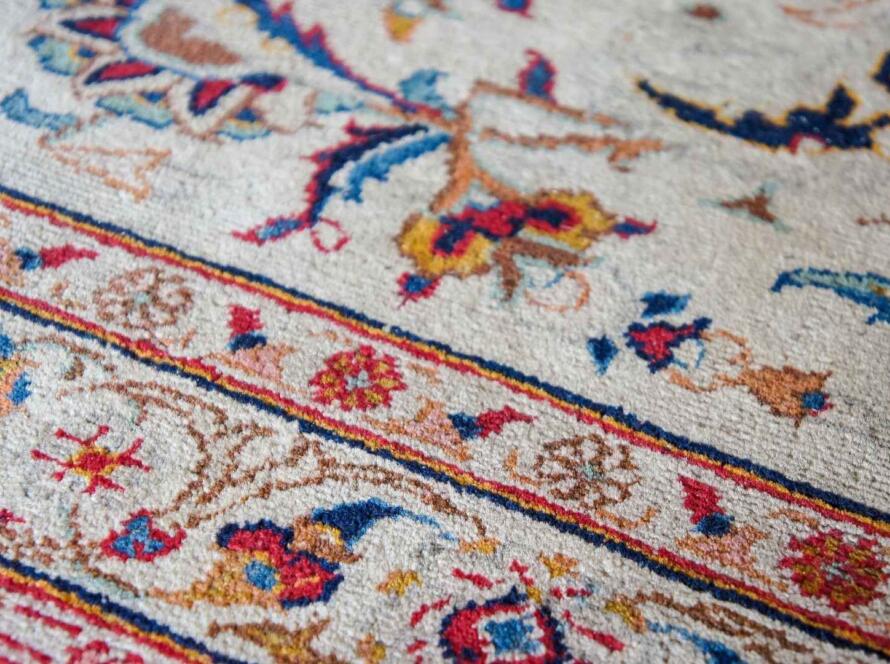
The Global Recycled Standard is a voluntary international standard that sets requirements for third-party certification of recycled content, chain of custody, social and environmental practices, and chemical restrictions. It is designed to meet the needs of companies looking to verify the recycled content of their products, as well as ensure responsible social, environmental, and chemical practices in their production processes.
Recycled Content Verification
Recycled content verification is at the heart of the GRS. It involves a comprehensive assessment process that confirms the authenticity and proportion of recycled materials in a product. This ensures that manufacturers are not falsely claiming higher recycled content than what is genuinely used. The verification process involves rigorous documentation and tracking from the initial recycling phase to the final product. This transparency allows consumers to have confidence in the claims made by manufacturers about their products’ sustainability.
Chain of Custody
Chain of custody is crucial for maintaining transparency in the production process. It involves tracking the recycled materials from the source, through various stages of production, until they reach the consumer. This ensures that recycled materials are not mixed with non-recycled ones without proper documentation. By maintaining a clear chain of custody, manufacturers demonstrate accountability and integrity, enhancing consumer trust. This meticulous tracking also aids in identifying any potential bottlenecks or inefficiencies in the supply chain that could be optimized for better environmental performance.
Environmental and Social Requirements

Environmental and social requirements in GRS encompass various aspects of production. Manufacturers must engage in sustainable practices that minimize their environmental impact, such as reducing emissions, conserving water, and managing waste responsibly. Socially, GRS mandates fair labor practices, promoting safe and equitable work environments. This includes ensuring workers’ rights are respected, fair wages are paid, and safe working conditions are maintained. These requirements not only benefit the environment but also enhance the social fabric by promoting ethical labor practices.
Chemical Restrictions
Chemical restrictions under GRS are stringent, aimed at safeguarding both workers and the environment. The standard outlines permissible limits for chemicals used in the production process to prevent harm. This involves regular monitoring and testing to ensure compliance with these restrictions. Manufacturers are encouraged to replace harmful substances with safer alternatives, fostering innovation and sustainability. By adhering to these chemical restrictions, manufacturers reduce the risk of environmental pollution and health hazards, contributing to a safer and cleaner production ecosystem.
Shivalika Rugs Manufacturer’s Commitment to Sustainability

Shivalika Rugs Manufacturer has taken significant steps to align with the Global Recycled Standard, demonstrating their commitment to sustainability and responsible manufacturing.
Use of Recycled Materials
Shivalika Rugs has integrated recycled materials into their production processes, significantly reducing their reliance on virgin resources. This strategic move not only helps in conserving natural resources but also in cutting down waste generation. The company prioritizes sourcing high-quality recycled fibers to ensure their products meet both durability and aesthetic standards. By championing the use of recycled materials, Shivalika Rugs sets a precedent in the industry, encouraging others to follow suit.
Energy Efficiency Initiatives
Investing in energy efficiency has been a cornerstone of Shivalika Rugs’ sustainability strategy. The company has upgraded its machinery to more energy-efficient models, reducing overall energy consumption. They have also implemented smart energy management systems to monitor and optimize energy usage continuously. These initiatives not only lower operational costs but also significantly reduce the carbon footprint of their manufacturing processes. By focusing on energy efficiency, Shivalika Rugs demonstrates that economic viability and environmental responsibility can go hand in hand.
Comprehensive Waste Management
Waste management at Shivalika Rugs involves a multi-faceted approach to minimize environmental impact. The company has established recycling programs to ensure that all waste materials are reused or recycled whenever possible. They also employ waste reduction techniques at every stage of production to minimize excess material generation. Additionally, Shivalika Rugs invests in technologies that convert waste into valuable byproducts, further reducing landfill contributions. Through comprehensive waste management strategies, the company exemplifies responsible environmental stewardship.
Commitment to Social Responsibility
Shivalika Rugs places a strong emphasis on social responsibility, ensuring that their business practices promote fairness and equity. The company adheres to fair labor practices, ensuring all employees receive fair wages and work in safe conditions. They invest in training and development programs to empower workers and enhance their skills. Furthermore, Shivalika Rugs engages in community outreach initiatives, supporting local development and social causes. Through these efforts, the company fosters a positive organizational culture and strengthens its community ties.
Achievements and Recognition in the Industry
Shivalika Rugs’ commitment to sustainability has not gone unnoticed. The company has received numerous accolades and certifications for its adherence to the Global Recycled Standard. These recognitions enhance their reputation as a leader in sustainable manufacturing, opening doors to new markets and partnerships. By achieving such recognition, Shivalika Rugs not only benefits its brand but also inspires other industry players to adopt similar sustainable practices. Their success story serves as a testament to the positive impact of aligning business operations with global sustainability standards.
The Benefits of GRS Certification for Consumers and the Environment

When consumers choose products certified by the Global Recycled Standard, they are making a conscious decision to support sustainability. Here’s how GRS certification benefits both consumers and the environment:
Enhanced Consumer Confidence
GRS certification provides consumers with assurance that the products they purchase are genuinely sustainable. This certification acts as a seal of authenticity, verifying that the product meets rigorous environmental and social standards. As a result, consumers can make informed purchasing decisions, knowing their choices contribute to a healthier planet. This enhanced confidence fosters greater brand loyalty and encourages consumers to advocate for sustainable products in their communities.
Positive Environmental Impact
The environmental benefits of GRS certification are manifold. By promoting the use of recycled materials, the standard helps reduce the demand for new resources, thereby conserving natural ecosystems. This leads to a decrease in energy consumption and greenhouse gas emissions associated with manufacturing. Additionally, GRS-certified products are often produced using processes that minimize waste and pollution, further contributing to environmental preservation. Collectively, these efforts result in a significant positive impact on global sustainability goals.
Economic Advantages for Businesses
Businesses that achieve GRS certification can enjoy numerous economic benefits. By integrating recycled materials, companies can often reduce production costs, which can be passed on to consumers as savings. GRS certification also enhances a company’s competitive edge, differentiating them in a market where sustainability is increasingly valued. This can lead to increased market share and opportunities for expansion into new, environmentally-conscious markets. Ultimately, GRS certification positions businesses as leaders in sustainability, attracting eco-minded consumers and partners.
How to Identify GRS Certified Products
As a consumer, you can look for the GRS label on products to ensure they meet the standard’s criteria for recycled content and sustainability practices. This label is typically found on product tags or packaging and signifies that the product has undergone rigorous certification processes.
Recognizing the GRS Label
The GRS label is a mark of sustainability that consumers can trust. It indicates that a product has been verified for its recycled content and sustainable production practices. The label is prominently displayed on product packaging, making it easy for consumers to identify environmentally responsible choices. By familiarizing themselves with this label, consumers can make informed decisions that align with their values and support sustainable manufacturing practices.
Supporting Sustainable Brands
By purchasing GRS certified products, consumers actively support brands that prioritize environmental and social responsibility. This consumer support drives demand for sustainable products, encouraging more companies to seek GRS certification. As a result, the market gradually shifts toward greater sustainability, amplifying the positive impact on the environment. Consumers play a crucial role in this transformation by choosing to support brands committed to sustainable practices.
Making Informed Purchasing Decisions
Educated consumers are powerful agents of change. By understanding the significance of GRS certification, consumers can make informed purchasing decisions that contribute to a sustainable future. This involves researching brands, reading product labels, and choosing products that align with their environmental values. By prioritizing GRS certified products, consumers send a clear message to manufacturers about the importance of sustainability, influencing industry practices on a broader scale.
Conclusion
The Global Recycled Standard is a powerful tool for promoting sustainability in manufacturing. Shivalika Rugs Manufacturer’s adherence to GRS exemplifies their commitment to environmental responsibility and quality. By choosing GRS certified products, consumers can contribute to a sustainable future and support companies that prioritize our planet’s health.
Together, we can make a difference by making informed choices and encouraging sustainable practices in every aspect of our lives. By understanding and supporting initiatives like the Global Recycled Standard, we not only promote a greener planet but also empower industries like Shivalika Rugs to continue their journey towards sustainability. Let’s make conscious choices today for a better tomorrow.




